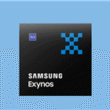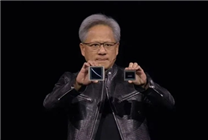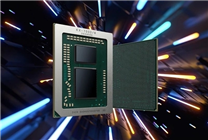Nvidia’s CEO Advocates for Open Markets Amid Chip Export Discussions with China
On August 29, Nvidia’s CEO, Jensen Huang, made headlines during an interview after the company’s second-quarter financial report for the fiscal year 2026. He expressed concerns about Nvidia’s ability to introduce its advanced Blackwell GPU in mainland China, calling on the U.S. government to ease market restrictions for American chipmakers.
According to Huang, there is a potential pathway to bring Blackwell GPUs to the Chinese market. He emphasized the critical role of U.S. tech companies in leading the global competition in artificial intelligence (AI). “We need to continue stressing the importance of American technologies and ensure they become the global standard,” he stated.
Engagement with United States Officials
Huang also revealed ongoing negotiations with the Trump administration regarding the potential sale of Nvidia’s powerful Blackwell chips to China. He believes that the widespread adoption of U.S. technology can significantly bolster the nation’s standing in the AI arena. Huang expressed optimism about these negotiations, noting that while no definitive timeline exists for an agreement, discussions are progressing well.
“I think this conversation will take some time, but it benefits the U.S. to have countries globally building AI on its technology stack,” he explained. Huang highlighted that achieving this would enhance America’s competitive edge in AI, akin to how the U.S. dollar functions as a global standard.
In previous engagements with the White House in July and August, Huang sought export licenses for Nvidia’s H20 artificial intelligence chip for the Chinese market.
Export License Agreements and Market Concerns
In August, an agreement was reportedly reached allowing Nvidia to export the H20 chip to China, contingent upon the stipulation that 15% of sales would be remitted to the U.S. government. However, Trump has insisted that the Blackwell chips cannot be sold to China without significant limitations, potentially reducing performance by 30% compared to the company’s leading products.
Huang shared that he plans further discussions with Trump to negotiate the specifics of the Blackwell chip export license. According to recent media reports, Nvidia is also developing a customized AI chip, the B30, designed for the Chinese market, boasting 80% of the Blackwell GPUs’ performance.
Implications for Nvidia’s Growth
Despite not selling H20 chips to China in the last quarter, Nvidia reported an impressive 56% year-on-year revenue growth, reaching $54 billion. The company managed to offload $180 million worth of H20 inventory to customers outside China, with total sales reported at $650 million.
For the upcoming fiscal third-quarter forecasts, Nvidia expects a revenue range of $54 billion (±2%), excluding any H20 sales. However, notable optimism surrounds the possibility of H20 shipments in the range of $2-5 billion, contingent on favorable geopolitical circumstances.
“We haven’t seen any orders yet, but we remain hopeful,” stated Huang. He highlighted the H20’s competitive edge, especially in cost-effectiveness and AI token generation capabilities. CFO Colette Kress noted that increased orders would drive production levels higher.
While Nvidia and the Trump administration have established a framework regarding the 15% revenue share of H20 sales in China, official regulations outlining the implementation of these terms are still pending. “U.S. government officials are keen on acquiring a portion of H20 sales, but specific regulatory guidelines have yet to be finalized,” Huang noted.
Future Prospects in the Chinese Market
Huang emphasized the immense business opportunities within the Chinese AI market, currently the second-largest in the world. He estimates that competitive product launches could present approximately $50 billion in revenue potential within this year, with an anticipated annual growth rate of 50%.
In summary, Nvidia is at a pivotal juncture as it navigates the complexities of international trade regulations and market opportunities. The future of its technology in China hinges on successful negotiations and the ability to adapt to the rapidly evolving landscape of AI technology. The coming months will be crucial in determining Nvidia’s standing and growth in both domestic and international markets.










